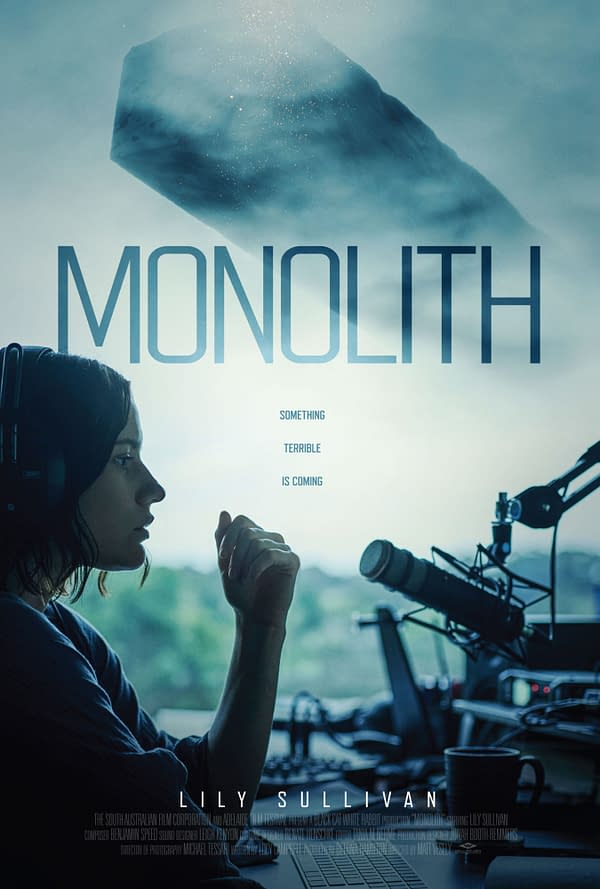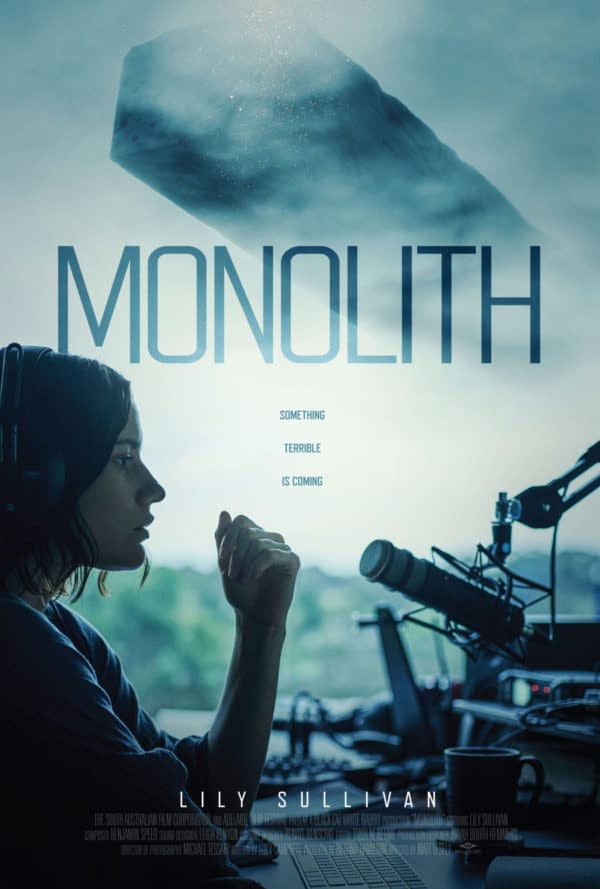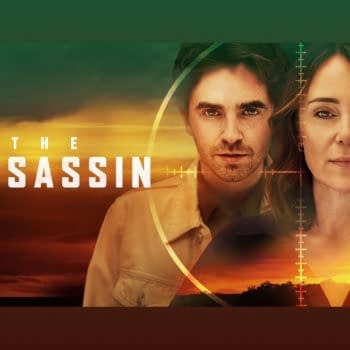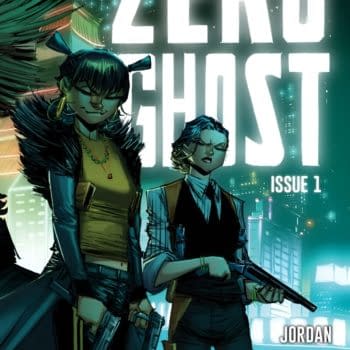Posted in: Movies, Review | Tagged: Feature Film, horror, Lily Sullivan, monolith, Repulsion, roman polanski, WellGo USA
Monolith: When Paranoia and Cosmic Horror Meet in Isolation
Monolith is a worthwhile indie psychological horror about one reporter's descent into conspiracy madness from WellGoUSA
Article Summary
- Australian indie horror Monolith explores a journalist's descent into obsession.
- Lily Sullivan shines on screen, unraveling her character's dark secrets.
- The film's central motif, a black brick, symbolizes ancient, unknowable terror.
- Monolith releases on VOD and Blu-Ray, bringing its haunting narrative home.
Monolith is an indie horror movie from Australia that deserves more attention. It won't set the world on fire, but it's a thoughtful, mysterious, and ambiguous entry in psychological horror. It was shot in Mid-2022, late in the Pandemic, and should not be seen as another Lockdown indie horror movie. A disgraced journalist (Lily Sullivan) is stuck hosting a podcast about mysterious phenomena and conspiracies and gets more than she bargained for.

The unnamed reporter has retreated to her rich parents' house to get away from trolls and doxxers after her major exposé about a public figure has been discredited for an unreliable source. The only work she could land was hosting a podcast aimed at an audience she has nothing but contempt for: people who believe in ghosts, conspiracies, and UFOs. She receives an anonymous email to investigate a mysterious black brick that various people all over the world have received over the years. What gets her going is a story of class and social injustice behind that first anecdote, and her moral outrage drives her to track down where that black brick went and who still has it. Soon she discovers something deeper behind the black brick, who gets one and why, and the black brick becomes the Monolith of the movie's title. Chasing down the black brick chips away at her professional detachment as she dives deeper into the rabbit hole of the black brick and how its recipients reacted to it, and what happened to them after that.

The Monolith is Madness
The black bricks hint at an ancient Lovecraftian horror, something ancient and unknowable whose purpose and reason are mysterious, but as the reporter gets more obsessed with unraveling that riddle, her mental state starts to unravel as well. The story takes another turn into a character study. She's not as ethically or morally upright as she likes to present herself and has secrets of her own that her obsession with the story starts to expose like a raw nerve. The Monolith of this story is not the mysterious black brick but guilt.
Monolith could be read as another Lockdown allegory about the fragility of mental health under long periods of isolation. Lily Sullivan is the only actor on screen throughout the movie and must hold our attention throughout. Fortunately, she has more than enough presence and skill to convey the complexity of nuances of the reporter's progress from bored arrogance and resentment to increasing paranoia and mental collapse. There are enough moments where the story is told visually and cinematically so it doesn't feel like a radio play with pictures added. Monolith might be influenced by Roman Polanski's Repulsion, which is also a psychological thriller about a woman who mentally unravels when left completely on her own and she can no longer tell what's real. For the reporter, everything becomes personal. The ending – and the whole story – becomes ambiguous, itself a metaphor for getting lost in paranoid conspiracy theories after getting obsessed. Madness is a monolith.
Monolith is out on VOD now and Blu-Ray on April 23rd.















